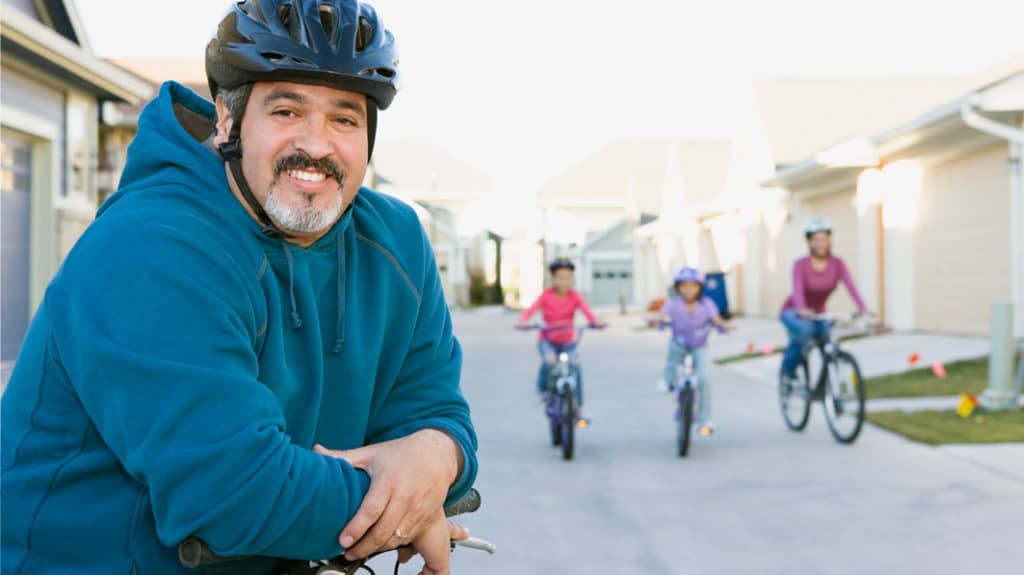Age & Stage
Menu
Menu

Are you doing a better job of protecting your kids from the world instead of preparing them to live in it? Don’t view their struggles as a negative. Instead, help them take appropriate risks now so they learn how to trust God and lean on Him as they mature.
In recent years I’ve read several reports about community Easter egg hunts getting canceled. Why? Aggressive parents were jumping onto the field to help their kids retrieve Easter eggs, despite being told by event organizers that the hunts were only for children. In their desire to ensure that their own children received plenty of eggs, they took whatever measures were necessary, creating a situation where some kids were pushed aside and didn’t get eggs. Of course, the actions were well intentioned.
In another story, a mother of a set of twins heard that a bee had stung a neighbor. Word got out that it was a nasty sting, so this mom decided it was too dangerous to allow her twins to play outside. She kept them inside. All summer. Again, a well-intentioned choice.
In 2012 the media reported that Aubrey Ireland, a 21-year old student at the University of Cincinnati Conservatory of Music, got a restraining order against her parents for “stalking her.” They installed tracking software on her electronic devices, made surprise visits and wanted her to stay on a Skype all night, while she slept, so they could monitor her. Aubrey said their helicopter ways were just too much.
I am a dad. I also lead a nonprofit organization that partners with 8,000 schools across America. This gives me a unique vantage point on today’s new generation of parents. Over the last few decades, I’ve watched parents give a new report card to themselves: If we’re going to be good parents, we have to act like the proverbial helicopter.
In the name of our children’s safety and self-esteem, we’ve hovered over them, desiring to prevent any negative experience that might damage their esteem or hinder their safety. Now that my own kids are grown adults, I can see how, at times, my wife and I did a better job protecting our kids from the world than preparing them to live in it. After all, these are our children, we reason with faulty logic, instead of learning to trust God for our children’s growth so they, too, may one day learn to lean on Him.
When our kids were toddlers, they often needed our vigilant presence and constant watchful eye. However, we need to shift roles to adjust to our kids’ maturity level. We must move from being a helicopter parent — hovering, guarding, keeping a tight hold, perhaps manipulating and controlling — to being a “lighthouse parent.”
A lighthouse stays in one location, and it’s a beacon that has ongoing communication with passing ships. A lighthouse reveals its location; it warns mariners of danger and provides wise guidance — but it won’t chase down the ships. How does the analogy apply to parenting? Here are the differences in a nutshell:
Our children won’t mature in a healthy way if they aren’t allowed to navigate scary situations and challenging experiences. Kids need to take calculated risks to mature. Unfortunately, American parents often view struggle as a negative thing. We’ve created a world of convenience, filled with smartphones, microwaves and the Internet. The message is that struggles and discomfort are to be avoided. We’ve recognized the value of self-esteem but forget that it should be strengthened through challenges.
What we fail to see is that when we remove struggles from our children’s lives, we begin to render them helpless. They lose the opportunity to develop resilience, creativity and problem-solving skills — important strengths they’ll need later on.
Scripture reminds us to count it joy when we fall into trials, for this kind of testing produces endurance. We’re then encouraged to allow endurance to have its full effect (James 1:2-4). When we continually step in to control our kids’ levels of risk, they don’t learn how to be in control or under control. In fact, all they learn is how to be controlled or how to seek help every step of the way.
So let’s take a quick look at what the shift from helicopter to lighthouse might look like:
Nathan gazes at the monkey bars on the community playground. They seem scary. He starts to climb slowly.
Zoe, a second-grader, forgets to take her backpack to school.
Ten-year old Josh asks his mom if he can climb the rocky hill down the street. It could result in some scrapes.
Eleven-year old Emily wants to sell cookies door-to-door for her scouting program. She’d rather not do it with her mom tagging along.
Ben has been invited to a sleepover at his good friend’s house. He’s 9, but has been too scared to spend the night till now.
Essentially, when we remove all risks from our kids’ lives, we may do more long-term harm than the risk itself.
Dr. Tim Elmore is a nationally recognized speaker, an author and the founder and president of Growing Leaders. His latest book is 12 Huge Mistakes Parents Can Avoid: Leading your kids to succeed in life.